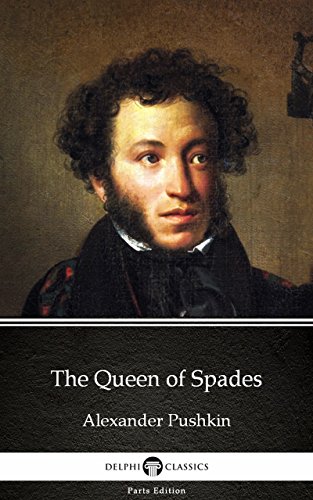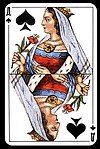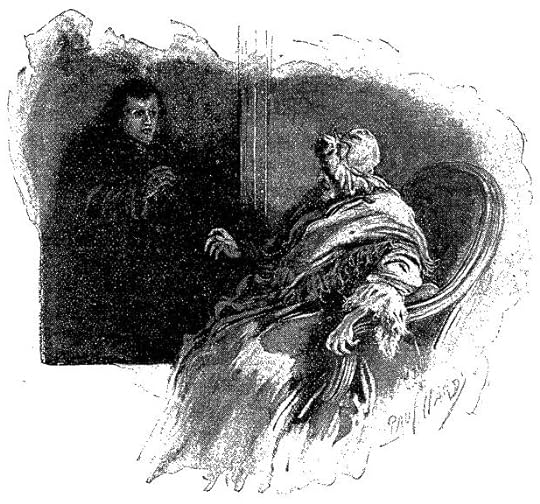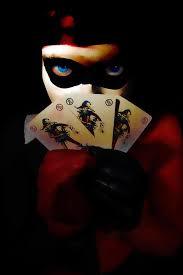What do you think?
Rate this book


Having established their name as the leading publisher of classic literature and art, Delphi Classics produce publications that are individually crafted with superior formatting, while introducing many rare texts for the first time in digital print. The Delphi Classics edition of Pushkin includes original annotations and illustrations relating to the life and works of the author, as well as individual tables of contents, allowing you to navigate eBooks quickly and easily.
eBook The complete unabridged text of ‘The Queen of Spades by Alexander Pushkin - Delphi Classics (Illustrated)’* Beautifully illustrated with images related to Pushkin’s works* Individual contents table, allowing easy navigation around the eBook* Excellent formatting of the textPlease visit www.delphiclassics.com to learn more about our wide range of titles28 pages
First published March 1, 1834
"...if the old Countess would but reveal her secret to me! if she would only tell me the names of the three winning cards. Why should I not try my fortune? I must get introduced to her and win her favour--become her lover... But all that will take time, and she is eighty-seven years old: she might be dead in a week, in a couple of days even!"
Alexander the Great, as a military commander, was undefeated and the most successful throughout history. On his way home from conquering many countries, he came down with an illness. At that moment, his captured territories, powerful army, sharp swords, and wealth all had no meaning to him. He realized that death would soon arrive and he would be unable to return to his homeland. He told his officers: 'I will soon leave this world. I have three final wishes. You need to carry out what I tell you.' His generals, in tears, agreed.
'My first wish is to have my physician bring my coffin home alone. After a gasping for air, Alexander continued: 'My second wish is scatter the gold, silver, and gems from my treasure-house along the path to the tomb when you ship my coffin to the grave.' After wrapping in a woolen blanket and resting for a while, he said: 'My final wish it to put my hands outside the coffin.' People surrounding him all were very curious, but no one dare to ask the reason. Alexander's most favored general kissed his hand and asked: 'My Majesty, We will follow your instruction. But can you tell us why you want us to do it this way?' After taking a deep breath, Alexander said: 'I want everyone to understand the three lessons I have learned. To let my physician carry my coffin alone is to let people realize that a physician cannot really cure people's illness. Especially when they face death, the physicians are powerless. I hope people will learn to treasure their lives. My second wish is to tell people not to be like me in pursuing wealth. I spent my whole life pursuing wealth, but I was wasting my time most of the time. My third wish to let people understand that I came to this world in empty hands and I will leave this world also in empty hands.' He closed his eyes after finished talking and stopped breathing."
Three, seven, ace!








